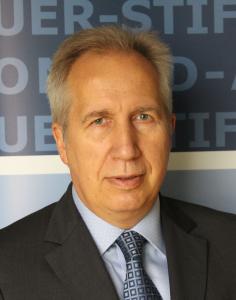Mexico ahead of the election - Foundation Office Palestinian Territories
The United Mexican States is a federally organised presidential republic with 32 federal states. The president is directly elected as head of state and government for a six-year term of office without the possibility of re-election. Congress consists of two chambers: the Senate (128 seats) and the Chamber of Deputies (500 seats), which are re-elected every six and three years, respectively. Until the year 2000, the country was ruled by a single state party (PRI) for more than 70 years without interruption, whose legacy continues to characterise the general understanding of democracy, elections, separation of powers, influence, and transfer of power de facto to this day. Mexico's political landscape has been quite volatile since 2000. When the PRI's autocratic rule was broken at the turn of the millennium by the conservative PAN with Vicente Fox and Mexico became a fully-fledged democracy through the peaceful transition of power, some efforts were made to reform the structural nepotism - with modest but important achievements such as the independent electoral institute INE. In 2018, AMLO came to power with the MORENA movement he founded. Since then, it has consistently expanded its political presence in the country and now governs 23 out of 32 states .
The election campaign in Mexico has officially been in full swing since 1 March 2024. On 2 June, over 99 million citizens will be called to vote, and political offices will be up for grabs at all levels of the state, from town halls to the presidential palace - a total of 20,263 posts according to the National Electoral Institute (INE). The most important decision is undoubtedly the election of the next head of state, in which Claudia Sheinbaum (MORENA), representing the government camp, and Xóchitl Gálvez (former PAN senator), representing the opposition, will face off. Jorge Álvarez Máynez is running for the Movimiento Ciudadano (MC) but is not considered to have any real chances. In addition, a new head of state (governor) will be elected in a total of nine states and a new state parliament in 31 out of 32. In some of these states, the situation appears to be relatively clear; the support among the population is too strong for MORENA in Chiapas or in Tabasco, AMLO's home state, for example. In some of the PAN's strongholds, such as Guanajuato or Yucatán, the respective PAN candidates are ahead, albeit with relatively narrow leads in the single digits. The contest in the populous states of Mexico City, Puebla and Veracruz appears to be much more exciting than was expected two months ago. The MORENA candidates were clearly ahead here, but a neck-and-neck race is now expected in all three states, which will be of particular importance for the overall result and the composition of the national congress.
What makes the election campaign and the political debates in Mexico so difficult to grasp is the fact that the central problem of violence and the loss of control by the state is obvious, but so far, no candidate has come up with a clear concept of how to deal with it, let alone what a solution might look like in the medium term. It is clear that the next president will inherit a huge mountain of problems: In addition to the annual murder rate, which is three times higher than in the United States (23 murders per 100,000 inhabitants), the migration problem also plays a significant role, and not just in bilateral relations with the USA. New ‘record numbers’ of refugees, some Latin American, some African, some Asian, who are trying to make their way to the USA via Mexico, are constantly being reported. On this route, they are exposed to extortion, rape, and murder by the drug cartels, which are also omnipresent here. This issue will also have a significant impact on the outcome of the US election on 5 November.
It remains to be hoped that, regardless of the specific election winner, Mexico could once again break new and forward-looking ground, for example in the area of energy supply. It is no secret that Mexico must drastically increase its climate protection efforts to produce more clean energy and create a solid infrastructure for foreign investment. Only in this way can the current nearshoring hype be put to good use and translated into investment, jobs, and greater prosperity. The current government's efforts could not be surpassed by the next one with a constitutional majority. All in all, the situation in Mexico remains dynamic and complex, but the imminent political and personnel shifts throughout the country offer the opportunity for a new start and new ideas. It is important to hold on to this.
The full-lenght publication is only available in German.



